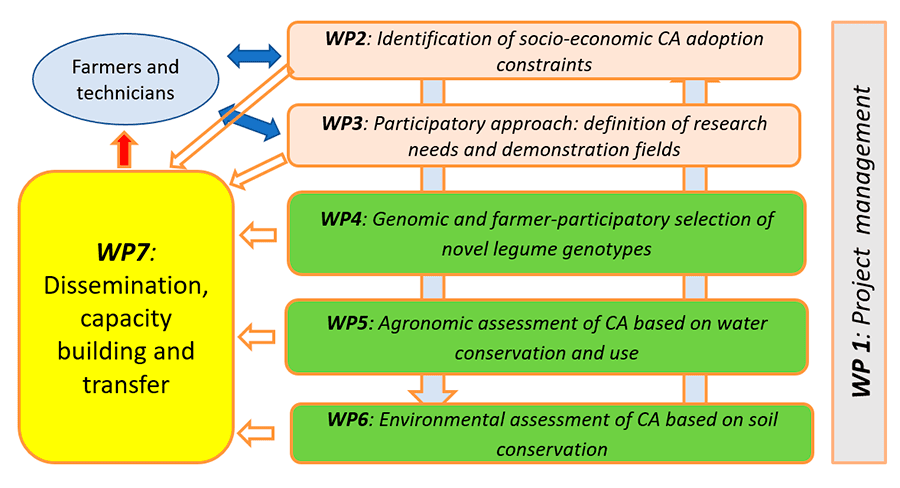

Project management will ensure the implementation of the project according to the work plan and the consortium agreement and will ensure a clear-sighted strategic direction and collaboration with existing and former EU and national projects. WP1 will undertake scientific coordination, financial control, quality monitoring, risk analysis. It will also prepare financial statements and consolidated scientific reports and provide intellectual property right and administrative management that conform to PRIMA rules.
Work Package 2 aims to understand the reasons for low adoption of CA in the 8 Mediterranean countries of the project by collecting information in target Region/Area on farmers' natural, social, economic and technological obstacles which can be overcome by on-farm experiments in farmers' fields runned by WP3.
A participatory approach in the network of local CA adopters will define the main research needs for smallholder under different pedoclimatic conditions and set out the implementation of on-farm demonstration fields managed by farmers and technicians to test innovative solutions regarding several CA practical aspects under different conditions.
This Work Package will select and make available new varieties of pea and lucerne for innovative and diversity-based cropping systems oriented to CA, by means of genomics and a farmer-participatory approach. It will validate crop improvement strategies based on genomic and farmer-participatory selection.
The objective of Work Package 5 is to assess the impacts of CA on crop yields, water conservation and crop water use. More specifically, the activities of this WP will :
The objective of Work Package 6 is to assess the impacts of conservation agriculture (CA) on soil conservation and environmental quality. In particular, this WP will:
Work Package 7 will achieve well-targeted dissemination, communication, capacity building and maximum impact of project findings and activities to relevant audiences. The work will aim to: